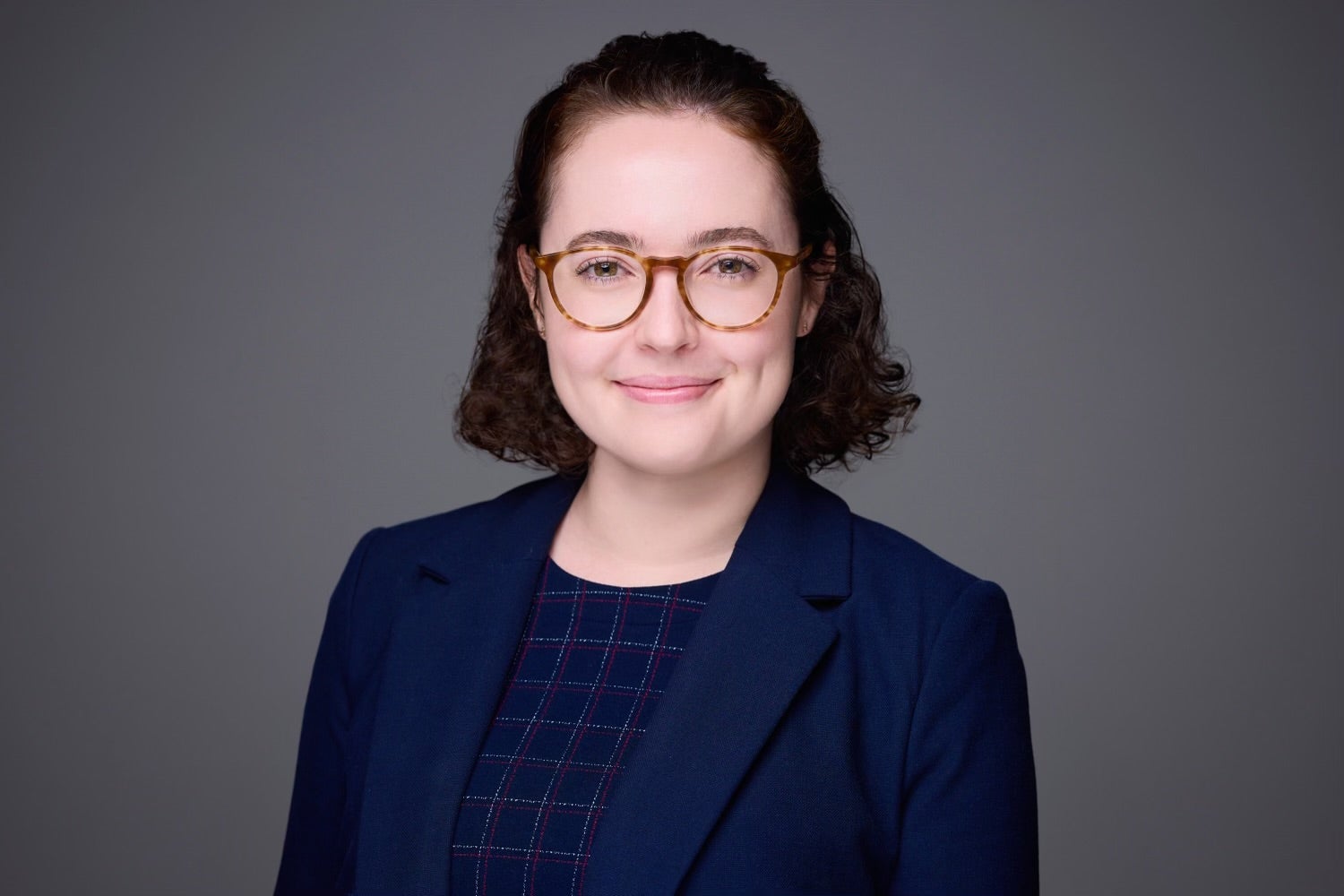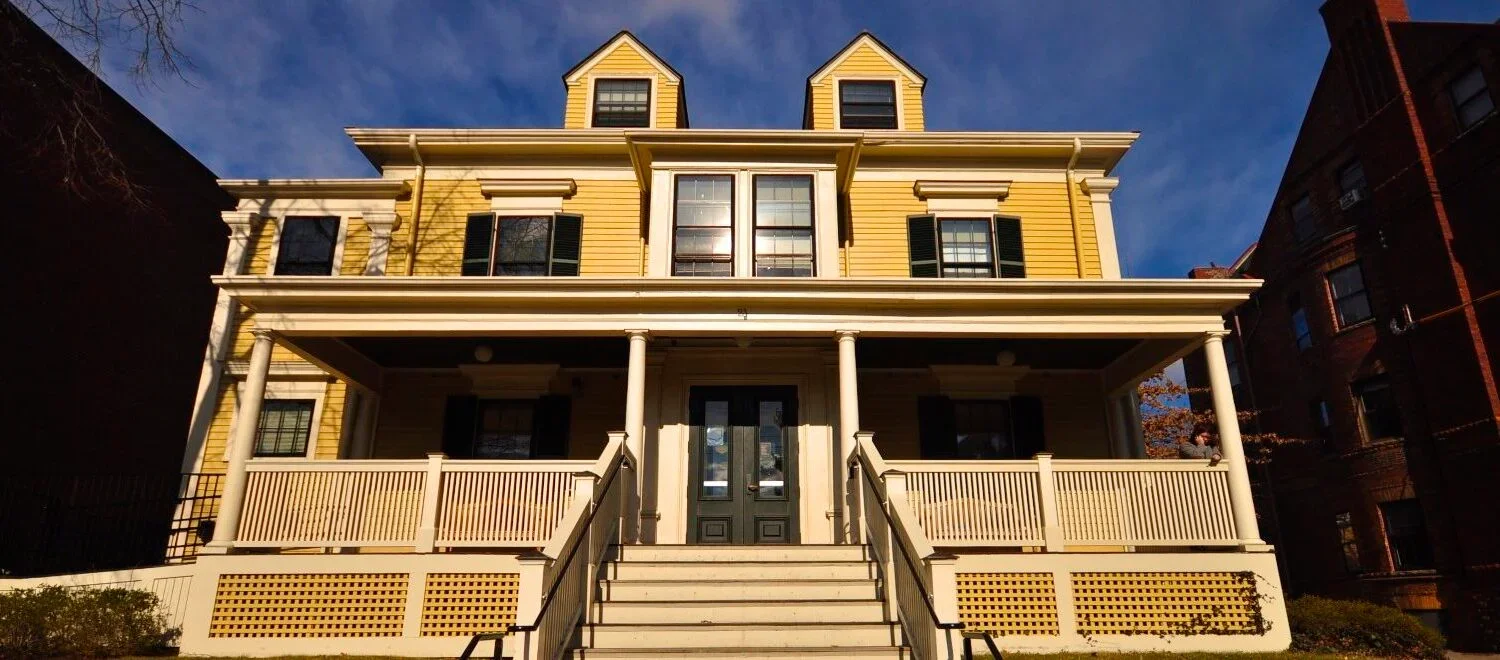In her first year as a student attorney in the Harvard Legal Aid Bureau (HLAB), Maddy Scannell ‘26 has helped to secure thousands of dollars in judgments for low-wage Boston-area workers.

“There’s power in collecting a judgment or going to court to hold accountable an employer who has exploited someone. It means dignity for the client,” she says.
When Scannell first arrived at Harvard Law School, she did not anticipate that her path would lead her to become a student attorney fighting for workers’ rights in the heart of Boston.
“I was originally pre-med going into college,” Scannell recalls. But something changed during her time at Rice University. As a long-time debate team member, she discovered a passion that medical textbooks couldn’t match. “I was much more excited about reading and writing and arguing than I was about the prospects of medical school,” she says. The competitive nature of advocacy spoke to her in a way that medical training never had.
Practical, hands-on experience working with clients was a priority for Scannell as soon as she arrived on campus. Before joining HLAB as a 2L, Scannell cut her teeth as a member of the Prison Legal Assistance Project (PLAP) during her first year. Her initial work was fundamental—manning phones, researching case support, and addressing disciplinary tickets within the prison system.
“I took on a couple of hearings,” she remembers. “I went to prison in person, engaged in discovery, and was able to practice preparing an opening statement and cross-examination.” Despite the emotionally challenging nature of the work, she found purpose. “It was really powerful to see how law school can help me assist someone who doesn’t have a lot of options,” she reflects.
However, the experience wasn’t without its difficulties. The systemic challenges were stark. “You’re set up in a prison system where the prisoner is testifying against an officer who works in the prison to another officer who works in the prison,” she explains. “It’s obviously slanted.” The repeated losses were disheartening, leaving Scannell ready to explore how she might serve local clients in a different context.
“I loved the client advocacy I did in PLAP, and I wanted to do more of it. I wanted the ability to see a long-term case through and build a deep relationship with a client.”
HLAB’s Wage and Hour team proved a perfect fit. Scannell’s undergraduate capstone had investigated wage and hour disputes through the Department of Labor, and she spent her 1L summer working at Greater Boston Legal Services’ Consumer Rights Division, focusing on defending against debt collection. While her background may have laid the groundwork for her work in HLAB, her first few weeks in the clinic were unlike anything she had ever experienced before.
“Right after I joined, I was told I had a hearing in two weeks,” she recalls. Previous HLAB students had already been building the client’s case for some time, but it was Scannell’s turn to step up to bat. Scannell was grateful for the trust her student attorney predecessor had already built with the client, but she still found herself working double time to make sure the client felt secure in their representation with her.
“I told him that I know there’s not a lot of time, and you don’t really know me, but I am going to do everything I can to win this for you. We met at La Colaborativa in Chelsea to solidify the relationship, and I spent a lot of time getting to know the legal arguments and prepare for his hearing.”
The outcome was remarkable. “I argued in court to a real judge and secured a $70,000 judgment for the client,” she says. “That was very empowering, because that’s a massive amount of money to anybody, especially to someone who works a minimum wage job and is not a privileged member of the Boston community.”
“It was trial by fire, but I came out the other side feeling really proud and confident about what the next two years would look like.”

HLAB’s Wage and Hour team primarily handles wage violations—unpaid minimum wage, overtime issues, and untimely payments. Massachusetts law provides a unique advantage: wage violations can result in tripled damages. “If the employer didn’t pay $500 in overtime, you’re entitled to $1,500,” Scannell notes.
Another recent case saw Scannell representing a domestic worker who had been employed by a private family in an informal agreement. The legal underpinning of her case was not something Scannell or her colleagues had much familiarity with, and there was not a large sum on the table for her client. Scannell laid out the facts to her client, and the client settled on sending a civil letter to the family instead of bringing the case to court, satisfied with the prospect of gaining a potential small settlement to support her family.
“A few weeks after we sent the letter, they mailed a money order to our office,” Scannell recalls. “We were able to get three times the amount of unpaid wages she was owed. We were able to give the client a check for several thousand dollars right before Christmas. The process of researching protections for domestic workers in Massachusetts, to then being able to leverage the fact that we have favorable laws in the client’s interest in an out-of-court resolution, to get a quick resolution with a fairly large check, was incredible.”
The clinic has close ties with many community organizations, including La Colaborativa, which primarily supports Latinx immigrations in Greater Boston. “They’re a source of not only our referrals, but also of informing the community about their rights,” Scannell says. HLAB students attend meetings there to support Know Your Rights Trainings, which often lead workers to seek representation once they realize they are entitled to damages.
HLAB students have represented scores of individual cases, but workers are increasingly gathering together to be represented as a group due to a shared experience. “Workers from the same factory or employer with similar claims are able to join together and engage in group representation with one attorney from HLAB,” Scannell says. “It shows not only that people who realize they’ve had the same experience are willing to support each other, but that it’s a claim the employer and court should take seriously.”
“People feel comfortable coming to our meetings there and sharing these exploitative work experiences,” Scannell reflects. “The empowerment I’ve seen for clients who decide to seek assistance has been really wonderful.”
Throughout the process, Scannell has been grateful to have the support of HLAB’s clinical instructors, who not only impart on students the legal knowledge in their practice area, but the skills to enter a courtroom and leverage that knowledge to the client’s advantage.
“My clinical instructor, Patricio Rossi, rocks. The clinical instructors are so skilled at bringing their experience to bear, but also guiding you to make the right decision on your own,” she says.
“There have been times when I’m negotiating a settlement with opposing counsel, and I feel like I’m not being taken seriously, whether because I’m a student attorney, a young woman, you name the reason. But the beauty of clinical education is the knowledge that you are perfectly equipped to do this. This is your client. Being given that authority and being empowered to realize that, yes, I can do this, and I have the tools I need to do this, has been a gift.”
As she contemplates her legal career, Scannell remains open to possibilities. She’ll spend her upcoming summer in a “triple split” across different legal environments, including big law and litigation boutiques. Her core interests remain consistent: trial work and client relationships.
“I like putting the facts together into a coherent argument,” she says. “I like building a relationship with a client and building trust—that will serve me no matter what path I choose.”
For aspiring clinical students, her advice is straightforward: “Spend time reflecting on what you want your next two years to look like.” She emphasizes the importance of learning through doing. “It’s a lot of work and a lot of hours,” Scannell acknowledges, “but I feel like it’s much less work than 1L because I’m able to enjoy the work that much more.”
Not only do these long hours allow lawyers-in-training to develop their skills for their future practice, but they do so by securing meaningful victories while empowering local workers in the fight against wage exploitation.
Filed in: Clinical Spotlight